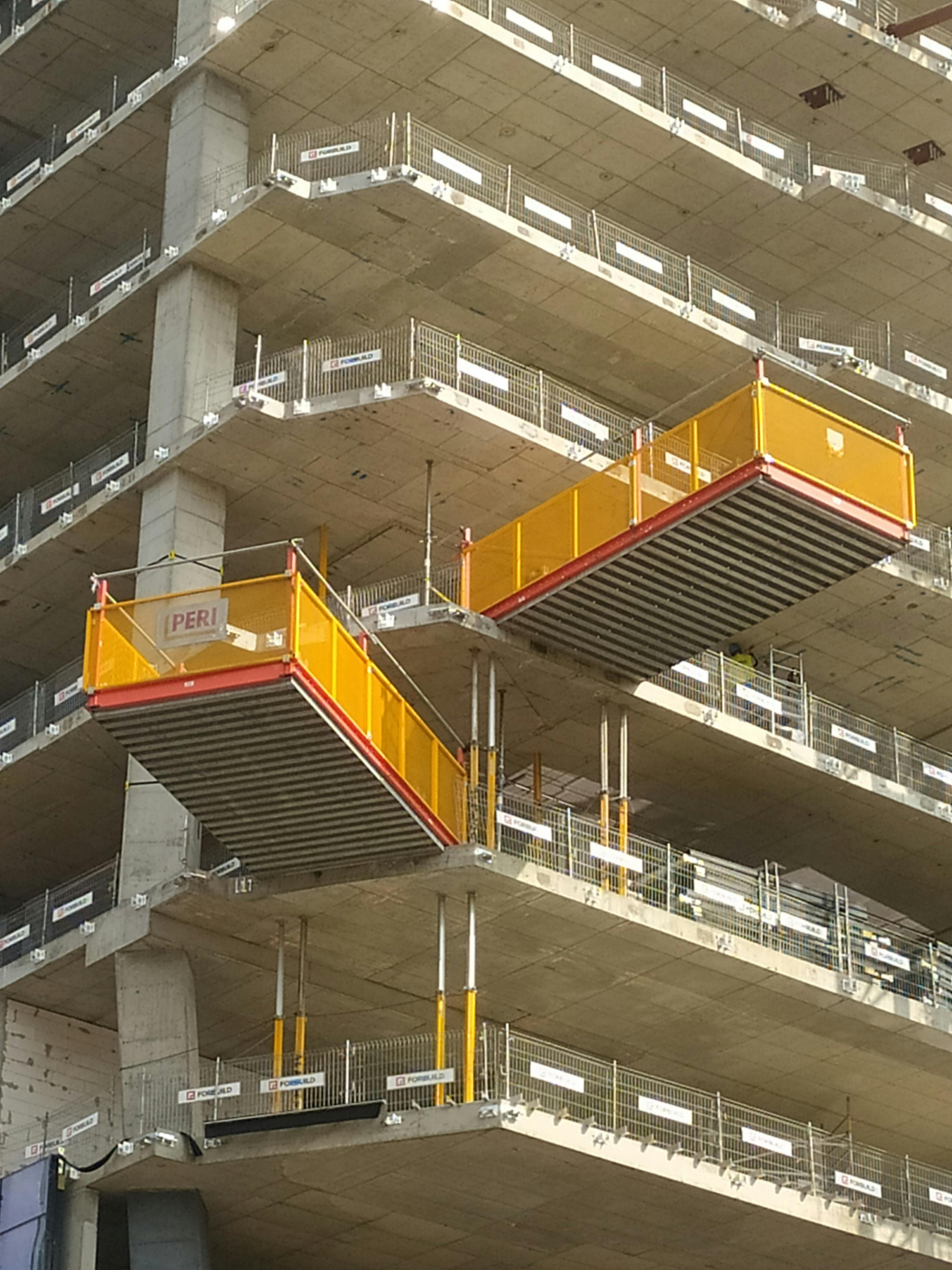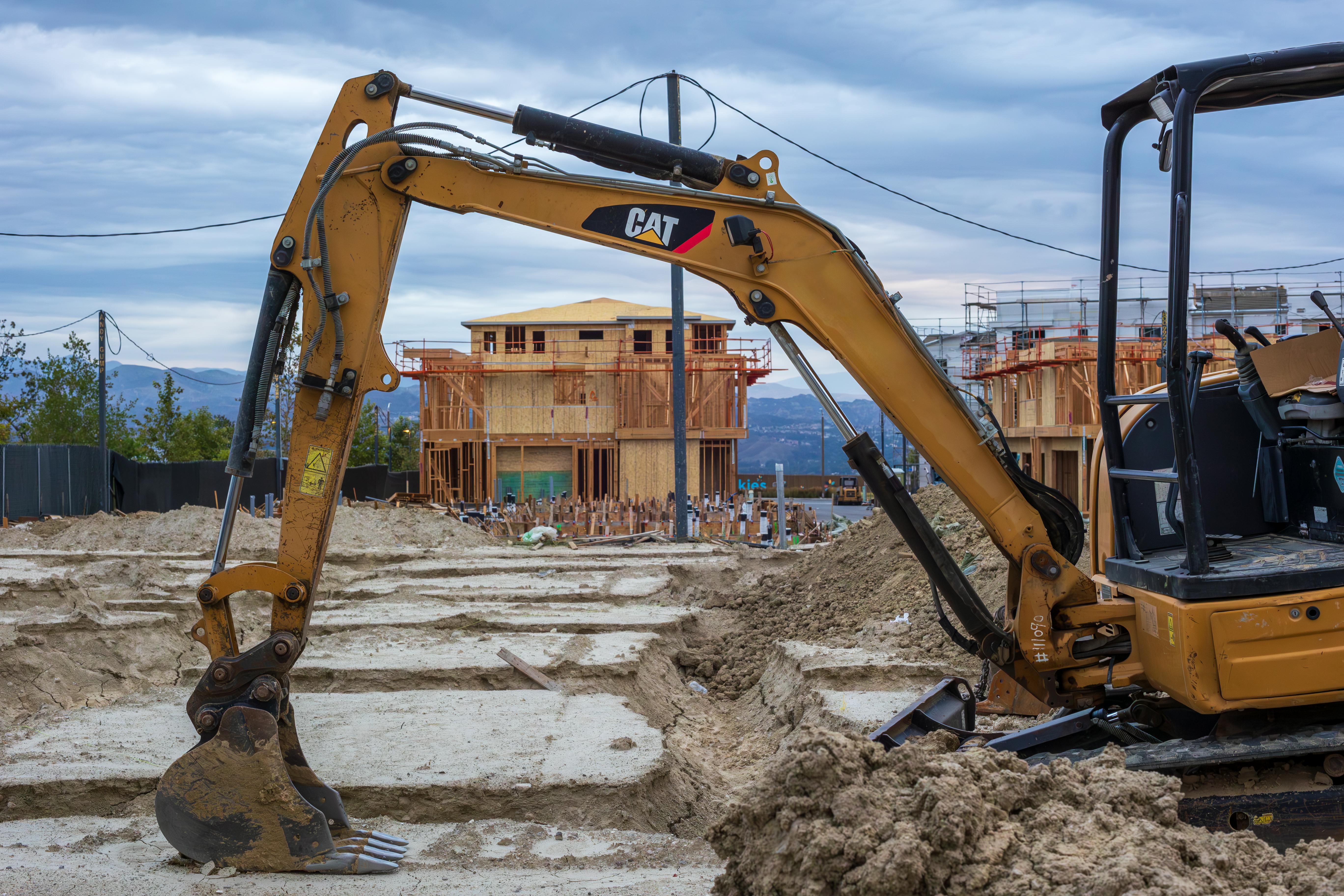Looking for a construction lawyer in Midvale, Utah? Whether you’re a contractor, developer, or property owner, navigating the legal aspects of the construction industry can be complex and overwhelming. That’s where we come in. Our team of experienced construction lawyers is here to provide you with the guidance and reassurance you need. From contract disputes and construction defects to insurance claims and zoning issues, we have the knowledge and expertise to protect your interests. Don’t let legal concerns bog you down – take the next step and give us a call today for a consultation. Let us help you successfully navigate the complexities of construction law in Midvale, Utah.

1. Overview of Construction Law
Construction Law is a specialized area of law that pertains to all legal matters related to the construction industry. It encompasses a wide range of issues, including contracts, regulations, disputes, and liabilities. Construction Lawyers play a crucial role in ensuring that all parties involved in a construction project adhere to the law and resolve any legal concerns that may arise.
1.1 Definition of Construction Law
Construction Law refers to the body of law that governs the rights and obligations of parties involved in the construction industry, including contractors, subcontractors, suppliers, developers, and property owners. This includes both residential and commercial construction projects. Construction Law covers a broad range of legal areas, including contract law, tort law, insurance law, and regulatory compliance.
1.2 Importance of Construction Lawyers
Construction Lawyers play a vital role in the construction industry by providing legal guidance and assistance to all parties involved in construction projects. They possess specialized knowledge and expertise in construction law and can help ensure that projects are conducted in accordance with legal requirements. Construction Lawyers can draft and review contracts, represent clients in disputes, and provide legal advice throughout the project development process.
1.3 Scope of Construction Law
Construction Law encompasses various legal issues that may arise during the entire construction process. This includes drafting and negotiating contracts, handling disputes, ensuring regulatory compliance, resolving payment issues, and addressing environmental concerns. Construction Lawyers are skilled in navigating these legal complexities and can provide valuable assistance at every stage of a construction project.
2. Role of a Construction Lawyer
Construction Lawyers have diverse responsibilities within the construction industry. Their expertise extends to various aspects of construction law, including contract negotiations, dispute resolution, regulatory compliance, and litigation. Let’s explore the key roles that Construction Lawyers play:
2.1 Advising on Contracts and Agreements
One of the primary roles of a Construction Lawyer is to advise clients on contracts and agreements related to construction projects. They thoroughly review and draft contracts to ensure that the terms and conditions are fair, protect their clients’ interests, and comply with applicable laws. Construction Lawyers help clients understand their rights and obligations under the contract and negotiate favorable terms.
2.2 Handling Construction Disputes
Disputes are common in the construction industry, and Construction Lawyers are trained to navigate these conflicts effectively. Whether it’s a disagreement between contractors and subcontractors, payment disputes, or issues with defective workmanship, Construction Lawyers can provide legal support and representation. They aim to resolve disputes amicably through negotiation, mediation, or arbitration, minimizing the need for costly litigation.
2.3 Providing Legal Support during Project Development
Construction Lawyers play an essential role in the early stages of project development. They assist clients with obtaining permits and approvals, navigating zoning and land use regulations, and ensuring compliance with building codes and safety standards. By providing legal guidance from the beginning, Construction Lawyers help clients avoid potential legal challenges and delays in the construction process.
2.4 Assisting with Regulatory Compliance
Compliance with legal and regulatory requirements is crucial in the construction industry. Construction Lawyers help clients understand and adhere to environmental regulations, safety standards, and licensing requirements. They ensure that construction projects are carried out in accordance with local, state, and federal laws, minimizing the risk of penalties and legal liabilities.
2.5 Representing Clients in Construction Litigation
In situations where disputes cannot be resolved through negotiation or alternative dispute resolution methods, Construction Lawyers can represent clients in construction litigation. They build strong legal cases, present evidence, and advocate for their clients’ rights in court. Construction Lawyers have extensive courtroom experience and possess the necessary litigation skills to effectively handle complex construction cases.
3. Common Legal Concerns in Construction
The construction industry is inherently complex and can give rise to various legal concerns. Construction Lawyers are well-versed in addressing these common legal issues and can provide guidance and reassurance to clients. Let’s explore some of these concerns:
3.1 Construction Contract Disputes
Contract disputes are one of the most common legal issues in the construction industry. Disagreements can arise over payment terms, scope of work, project delays, or changes to the original contract. Construction Lawyers help clients understand their contractual rights and obligations and work to resolve these disputes efficiently and cost-effectively.
3.2 Defective Workmanship Claims
Defective workmanship can lead to significant financial losses and disputes between parties involved in a construction project. Construction Lawyers assist clients in assessing the validity of these claims and pursuing legal remedies, such as seeking compensation for repairs or initiating legal action against responsible parties.
3.3 Construction Delays and Disruptions
Construction projects are often subject to delays and disruptions due to unforeseen circumstances. Whether it’s adverse weather conditions, labor disputes, or issues with materials or equipment, these delays can result in financial losses and contractual disputes. Construction Lawyers help clients navigate these complexities and seek remedies for damages caused by delays or disruptions.
3.4 Construction Liens and Payment Issues
Payment disputes are a common concern in the construction industry, with contractors and subcontractors often facing issues with non-payment or delayed payment. Construction Lawyers assist clients in filing construction liens, which can help secure payment for services rendered. They also help resolve payment disputes through negotiation, mediation, or legal action if necessary.
3.5 Environmental Compliance in Construction
Environmental compliance is a growing concern in the construction industry. Construction projects must adhere to various environmental regulations, such as proper waste disposal, protection of natural resources, and mitigation of potential environmental impacts. Construction Lawyers ensure that clients are aware of these regulations and assist in developing environmentally sustainable construction practices.
4. Benefits of Hiring a Construction Lawyer
Hiring a Construction Lawyer offers numerous benefits for all parties involved in construction projects. They bring specialized expertise in construction law and provide essential guidance and support. Let’s explore the key benefits of hiring a Construction Lawyer:
4.1 Expertise in Construction Law
Construction Lawyers possess in-depth knowledge and understanding of the intricacies of construction law. They stay up-to-date with the latest legal developments, regulations, and case precedents in the construction industry. This expertise allows them to provide clients with accurate and effective legal advice tailored to their specific needs.
4.2 Guidance in Contract Negotiations
Contract negotiations are a critical phase of any construction project. Construction Lawyers play a vital role in reviewing and negotiating contracts on behalf of their clients. They ensure that the terms and conditions of the contract protect their clients’ interests and mitigate potential risks. By having a Construction Lawyer on your side during contract negotiations, you can achieve more favorable outcomes and minimize legal disputes.
4.3 Efficient Handling of Disputes
Disputes can arise at any stage of a construction project and may lead to costly delays and damages. Construction Lawyers are well-equipped to handle these disputes efficiently and effectively. They have extensive experience in negotiation, mediation, and arbitration techniques, which can help resolve conflicts and reach mutually beneficial solutions promptly.
4.4 Protection Against Legal Liabilities
Construction projects inherently carry a certain degree of legal risk. Construction Lawyers help clients identify and mitigate potential legal liabilities. By working closely with clients, they ensure that best practices and legal requirements are adhered to throughout the project, minimizing the risk of lawsuits and legal consequences.
4.5 Cost-Effective Solutions
Engaging the services of a Construction Lawyer from the beginning of a project can help prevent costly legal issues down the line. By providing proactive legal advice and guidance, Construction Lawyers help clients avoid disputes, navigate complex regulations, and ensure compliance. This proactive approach ultimately leads to cost savings and smoother project execution.

5. Construction Lawyer’s Role in Project Development
Construction Lawyers play a crucial role in the early stages of project development. Their involvement ensures that legal requirements are met, contracts are sound, and potential risks are mitigated. Let’s delve into the specific ways in which Construction Lawyers contribute to the project development process:
5.1 Reviewing and Drafting Contracts
Contracts are the backbone of any construction project and lay the foundation for a successful outcome. Construction Lawyers thoroughly review and draft contracts on behalf of their clients, ensuring that all terms and conditions are clear, fair, and legally enforceable. They consider aspects such as scope of work, payment terms, dispute resolution mechanisms, and change order procedures.
5.2 Assisting with Permit Applications and Approvals
The construction process often requires obtaining various permits and approvals from regulatory authorities. Construction Lawyers assist clients in navigating the complex permitting process by ensuring that all necessary documentation is in order, preparing applications, and addressing any legal concerns raised by the authorities. They help clients comply with zoning, land use, and building code requirements.
5.3 Ensuring Compliance with Building Codes and Regulations
Compliance with building codes and regulations is crucial to the success and safety of a construction project. Construction Lawyers help clients understand and adhere to these codes and regulations, minimizing the risk of penalties, project delays, and legal liabilities. They ensure that all aspects of the project, from design to construction to occupancy, meet the necessary legal standards.
5.4 Mitigating Construction Risks
Construction projects are inherently risky, with numerous potential pitfalls that can impact timelines, budgets, and outcomes. Construction Lawyers work closely with clients to identify and mitigate these risks through careful planning, contract negotiation, and compliance with legal requirements. Their proactive approach helps minimize the occurrence of disputes and legal challenges.
5.5 Resolving Construction-related Issues
During the project development phase, various legal issues may arise that require immediate attention. Construction Lawyers provide ongoing legal support to clients, addressing concerns such as contract modifications, permit disputes, environmental compliance issues, and contractor performance. Their role is to ensure that potential hurdles are resolved promptly, minimizing the impact on the project timeline and budget.
6. Steps to Take when Facing Construction Disputes
Despite the best efforts of all parties involved, construction disputes can still occur. When faced with a construction dispute, it is crucial to take the appropriate steps to protect your interests and seek a resolution. Here are the recommended steps to take when facing construction disputes:
6.1 Gather Relevant Documentation
When a dispute arises, it is essential to gather all relevant documentation related to the project, including contracts, change orders, invoices, and correspondence. This documentation will serve as evidence and help Construction Lawyers assess the merits of your case.
6.2 Review Contractual Obligations
Thoroughly review the contract to understand your rights and obligations. Construction Lawyers can assist in interpreting the contract terms and determining whether any breaches have occurred. Understanding your contractual rights will guide your approach to resolving the dispute.
6.3 Use Alternative Dispute Resolution Methods
Consider using alternative dispute resolution methods, such as negotiation, mediation, or arbitration. These methods provide a less adversarial and more cost-effective approach to resolving construction disputes. Construction Lawyers can represent you during the mediation or arbitration process and work towards a mutually beneficial solution.
6.4 File a Lawsuit if Necessary
If alternative dispute resolution methods fail to result in a satisfactory resolution, filing a lawsuit may be necessary. Construction Lawyers can guide you through the litigation process, building a strong case and representing your interests in court.
6.5 Seek Mediation or Arbitration
Before initiating a lawsuit, it is often wise to explore the possibility of mediation or arbitration. These methods offer a more flexible and less formal approach to resolving disputes, with the goal of reaching a mutually acceptable settlement. Construction Lawyers can assist in selecting and engaging a mediator or arbitrator who specializes in construction disputes.
7. Construction Lawyer’s Role in Construction Litigation
Construction litigation can be a complex and time-consuming process. Construction Lawyers excel in this area by leveraging their legal expertise and courtroom experience. Let’s explore the specific roles Construction Lawyers play in construction litigation:
7.1 Building a Strong Legal Case
Construction Lawyers thoroughly investigate the circumstances surrounding the dispute to build a strong legal case. They gather evidence, interview witnesses, review contracts, and consult with experts as needed to support their clients’ claims. Preparation is key to presenting a compelling argument in court.
7.2 Representing Clients in Court
Construction Lawyers represent their clients’ interests throughout the litigation process. They prepare legal arguments, present evidence, and cross-examine witnesses during trials. Their goal is to provide effective representation and advocate for their clients’ rights, seeking the most favorable outcome possible.
7.3 Negotiating Settlement Agreements
During the litigation process, Construction Lawyers often explore the possibility of reaching a settlement agreement with the opposing party. They engage in negotiations to resolve the dispute outside of court, saving time, money, and potential risks associated with trial. Construction Lawyers strive to achieve a settlement that protects their clients’ interests.
7.4 Exploring Alternative Dispute Resolution
Even during litigation, alternative dispute resolution methods, such as mediation or arbitration, may still be pursued. Construction Lawyers guide their clients through these processes, facilitating communication and negotiation in pursuit of a resolution that both parties find acceptable.
7.5 Providing Post-Litigation Support
Once a construction litigation case has concluded, Construction Lawyers provide post-litigation support and guidance. This may involve enforcement of judgments, negotiation of payment arrangements, or addressing any remaining legal concerns resulting from the litigation. Construction Lawyers are committed to ensuring that their clients’ interests are protected even after the conclusion of a case.
8. Understanding Construction Liens and Payment Issues
Construction liens and payment disputes are significant concerns in the construction industry. Understanding the intricacies of construction liens and protecting payment rights is crucial for all parties involved in a construction project. Let’s delve into the details of construction liens and payment issues:
8.1 Overview of Construction Liens
A construction lien is a legal claim placed on a property by a contractor or supplier who has provided labor, materials, or services but has not received full payment. Construction liens protect the rights of these parties to seek payment for their work.
8.2 Filing a Construction Lien
To file a construction lien, specific legal requirements must be met, including strict deadlines and documentation. Construction Lawyers can assist in properly filing a lien, ensuring that all necessary information is included and deadlines are met to protect payment rights.
8.3 Enforcing a Construction Lien
After a construction lien has been filed, it may be necessary to enforce the lien to secure payment. Construction Lawyers play a crucial role in the enforcement process, which may involve legal action, negotiations, or settlement discussions.
8.4 Resolving Payment Disputes
Construction Lawyers assist clients in resolving payment disputes through negotiation, mediation, or litigation. They review contracts, invoices, and other relevant documentation to assess the validity of claims and pursue appropriate legal remedies to secure payment.
8.5 Protecting Payment Rights
Contractors and subcontractors must take proactive measures to protect their payment rights. Construction Lawyers can help establish effective payment procedures, review contracts for payment provisions, and ensure compliance with lien laws to minimize the risk of non-payment or delayed payment.

9. Importance of Environmental Compliance in Construction
In an era of increasing environmental awareness, construction projects must prioritize environmental compliance. Failure to adhere to environmental regulations can lead to legal consequences, reputational damage, and harmful impacts on the environment. Let’s explore the importance of environmental compliance in construction:
9.1 Environmental Regulations Applicable to Construction
Various environmental regulations govern construction activities, including laws related to air quality, water pollution, waste management, and protection of natural resources. Construction Lawyers help clients understand and comply with these regulations to ensure that projects are carried out in an environmentally-responsible manner.
9.2 Environmental Impact Assessment
Construction projects often require an Environmental Impact Assessment (EIA) to evaluate potential environmental impacts and propose mitigation measures. Construction Lawyers can assist clients in conducting EIAs, ensuring compliance with legal requirements, and addressing any environmental concerns raised during the assessment process.
9.3 Handling Hazardous Materials and Waste
Construction projects may involve the handling, storage, and disposal of hazardous materials and waste. Construction Lawyers provide guidance on adhering to applicable laws and regulations regarding the safe handling, transportation, and disposal of hazardous materials. They help clients develop proper waste management plans and ensure compliance with environmental laws.
9.4 Environmental Permitting and Compliance
Obtaining environmental permits is often a prerequisite for initiating construction projects. Construction Lawyers assist clients in the permit application process, ensuring compliance with legal requirements, and addressing any concerns raised by regulatory authorities. They help clients navigate the complex permitting system and avoid potential penalties or delays due to non-compliance.
10. Conclusion
Construction Lawyers play an indispensable role in the construction industry by providing legal expertise, guidance, and support. They assist clients in navigating the intricacies of construction law, mitigating risks, resolving disputes, and ensuring compliance with legal requirements. If you are involved in a construction project, seeking the assistance of a Construction Lawyer in Midvale, Utah, is crucial to protect your interests and ensure a successful outcome. Contact [Phone Number] to schedule a consultation with an experienced Construction Lawyer and get the legal assistance you need.